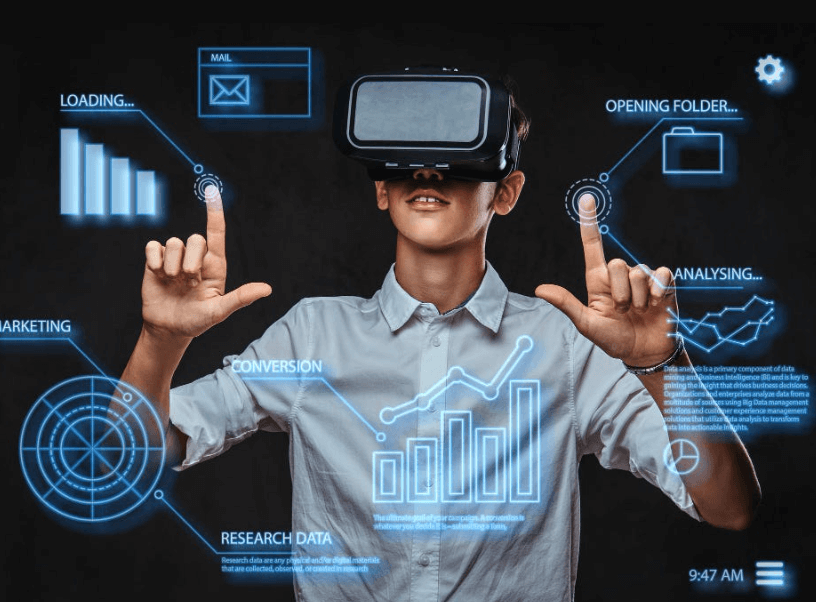Top 10 Emerging Technologies to Keep an Eye On

As the 21st century progresses, several technologies are poised to redefine industries and lifestyles. Innovations like artificial intelligence and quantum computing have already begun to influence decision-making and data processing. Meanwhile, advancements in 5G technology and augmented reality are set to transform transportation and education, respectively. Understanding these developments will be essential for navigating future challenges and opportunities. The implications of these technologies warrant closer examination.
Artificial Intelligence and Machine Learning
Artificial Intelligence (AI) and Machine Learning (ML) represent a transformative force in numerous sectors, fundamentally altering how businesses operate and make decisions.
Natural language processing enables machines to understand human language, enhancing customer interactions. Furthermore, predictive analytics empowers organizations to forecast trends and behaviors, optimizing resource allocation.
Together, AI and ML foster innovation, efficiency, and strategic agility, providing significant competitive advantages in today’s dynamic market landscape.
See also: The Role of Tech in Reducing the Digital Divide
Quantum Computing
Quantum computing represents a significant departure from classical computing, rooted in the principles of quantum mechanics that govern the behavior of subatomic particles.
Its real-world applications span various fields, from cryptography to drug discovery, suggesting transformative potential across multiple industries.
As the technology matures, its implications could reshape business operations, data security, and problem-solving capabilities on an unprecedented scale.
Principles of Quantum Mechanics
The principles of quantum mechanics form the foundational framework for the development of quantum computing, a field poised to revolutionize information processing.
Central concepts such as wave-particle duality and quantum entanglement phenomena challenge classical notions of determinism and locality.
These principles enable quantum systems to perform complex calculations at unprecedented speeds, offering transformative potential in various domains, including cryptography, optimization, and artificial intelligence.
Real-World Applications
As industries increasingly seek to harness the capabilities of advanced technologies, the real-world applications of quantum computing are becoming more prominent.
Practical implementations are emerging in sectors like finance, pharmaceuticals, and logistics, enabling faster data processing, optimizing supply chains, and enhancing drug discovery.
These advancements highlight the potential of quantum computing to drive innovation and efficiency in various fields, reshaping traditional practices.
Future Implications for Industries
How will industries adapt to the transformative potential of quantum computing in the coming years?
Organizations will likely reshape supply chains and embrace workforce transformation, responding to shifting consumer behavior.
Ethical considerations and regulatory frameworks will emerge, guiding market disruption.
5G Technology
Advancement in communication technology continues to shape societal interactions, with G Technology representing a significant leap forward.
G technology trends indicate a shift toward enhanced connectivity and speed, enabling applications in diverse fields such as healthcare, smart cities, and autonomous vehicles.
This transformative potential fosters innovation, allowing individuals and organizations to navigate complexities with greater freedom and efficiency, ultimately reshaping contemporary life.
Blockchain and Decentralized Finance
A growing number of industries are recognizing the transformative potential of blockchain technology and decentralized finance (DeFi).
By leveraging smart contracts and decentralized applications, they promote financial inclusion and facilitate peer-to-peer lending.
Innovations in asset tokenization and token economies enhance blockchain scalability and interoperability, while ongoing cryptocurrency regulation addresses concerns surrounding digital identity.
These advancements herald a new era of decentralized financial systems.
Augmented Reality and Virtual Reality
Augmented Reality (AR) and Virtual Reality (VR) are rapidly transforming various sectors, particularly education, gaming, and healthcare.
In educational settings, these technologies enhance interactive learning experiences, while in gaming and entertainment, they create immersive environments that captivate users.
Furthermore, their potential applications in healthcare promise to revolutionize patient care and medical training, indicating a significant shift in how these industries operate.
Applications in Education
Immersive technologies, particularly virtual reality (VR) and augmented reality (AR), are revolutionizing educational environments by enhancing interactive learning experiences.
These technologies foster personalized learning in digital classrooms and promote skill development through adaptive technologies.
Gaming and Entertainment Impact
The influence of emerging technologies, particularly VR and AR, extends beyond education into the realms of gaming and entertainment, where they are fundamentally reshaping user experiences.
These technologies foster immersive experiences and interactive storytelling, enhancing player engagement in competitive gaming. They also contribute to eSports evolution, enable virtual economies, and support social connectivity through content creation and the proliferation of digital collectibles, transforming narrative design.
Future in Healthcare
As healthcare systems increasingly seek innovative solutions to enhance patient care and streamline operations, the integration of virtual reality (VR) and augmented reality (AR) stands out as a transformative development.
These technologies, coupled with telehealth advancements and wearable devices, promise to revolutionize diagnostics, treatment planning, and patient engagement, offering a more personalized and immersive experience that empowers patients and healthcare providers alike.
Internet of Things (IoT)
Connectivity defines the Internet of Things (IoT), a network of interconnected devices that communicate and exchange data autonomously.
This technology enhances the smart home experience by optimizing energy usage and improving security.
Additionally, the industrial IoT revolutionizes manufacturing processes, enabling real-time monitoring and predictive maintenance.
As these systems evolve, they promise increased efficiency and freedom in personal and professional environments.
Biotechnology and Genetic Engineering
Biotechnology and genetic engineering are at the forefront of scientific innovation, particularly through advancements such as CRISPR and gene editing.
These technologies offer unprecedented capabilities for modifying genetic material, which can lead to significant breakthroughs in personalized medicine.
As a result, the potential for tailored treatments based on an individual’s genetic makeup is becoming increasingly viable, raising both opportunities and ethical considerations in healthcare.
CRISPR and Gene Editing
CRISPR and gene editing represent a transformative leap in the field of genetic engineering, offering unprecedented precision in modifying DNA sequences.
These technologies hold promise for gene therapy and disease prevention, addressing genetic disorders and hereditary diseases.
Agricultural advancements, such as precision agriculture, illustrate CRISPR applications in enhancing crop resilience.
However, ethical concerns and biotechnology regulations remain crucial in guiding responsible development and use of synthetic biology.
Personalized Medicine Advances
As advances in technology continue to reshape the healthcare landscape, personalized medicine emerges as a pivotal development in the realm of biotechnology and genetic engineering.
Utilizing genetic profiling and health data, it enables treatment customization and targeted therapies, potentially improving patient outcomes.
However, ethical considerations surrounding genomic research, healthcare access, and disease prevention must be addressed to maximize the benefits of this innovative approach.
Renewable Energy Technologies
While the global demand for energy continues to escalate, the pursuit of renewable energy technologies has emerged as a critical focal point for sustainability and innovation.
Solar power advancements, wind energy innovations, and hydroelectric systems are pivotal.
Coupled with energy storage solutions and geothermal energy potential, bioenergy developments and electric vehicle technology enhance grid modernization and energy efficiency strategies, fostering a sustainable future.
Cybersecurity Innovations
In an era where digital transformation accelerates, the need for robust cybersecurity innovations has never been more critical.
Strategies like zero trust, enhanced threat intelligence, and security automation are reshaping defenses. Focus on endpoint protection and ransomware defense complements cloud security efforts.
Additionally, phishing prevention and effective incident response are vital, while identity management and compliance with privacy regulations ensure a holistic approach to safeguarding digital assets.
Autonomous Vehicles
How will autonomous vehicles reshape transportation and urban landscapes?
These innovations promise to enhance mobility and reduce congestion while adhering to evolving self-driving regulations.
With an emphasis on autonomous safety, they could minimize accidents and transform public transit systems.
As cities adapt to this technology, the potential for increased freedom in movement and accessibility becomes evident, shaping a more efficient urban experience.
Conclusion
In a world increasingly dominated by technology, one might ironically ponder whether humanity is enhancing its existence or merely crafting elaborate tools for self-entrapment. As these ten emerging technologies promise to redefine industries and improve lives, they also invite scrutiny regarding their implications. The balance between innovation and ethical responsibility will ultimately determine if these advancements serve as catalysts for progress or unwitting agents of disruption. Thus, vigilance in navigating this technological landscape is not just advisable; it is imperative.




